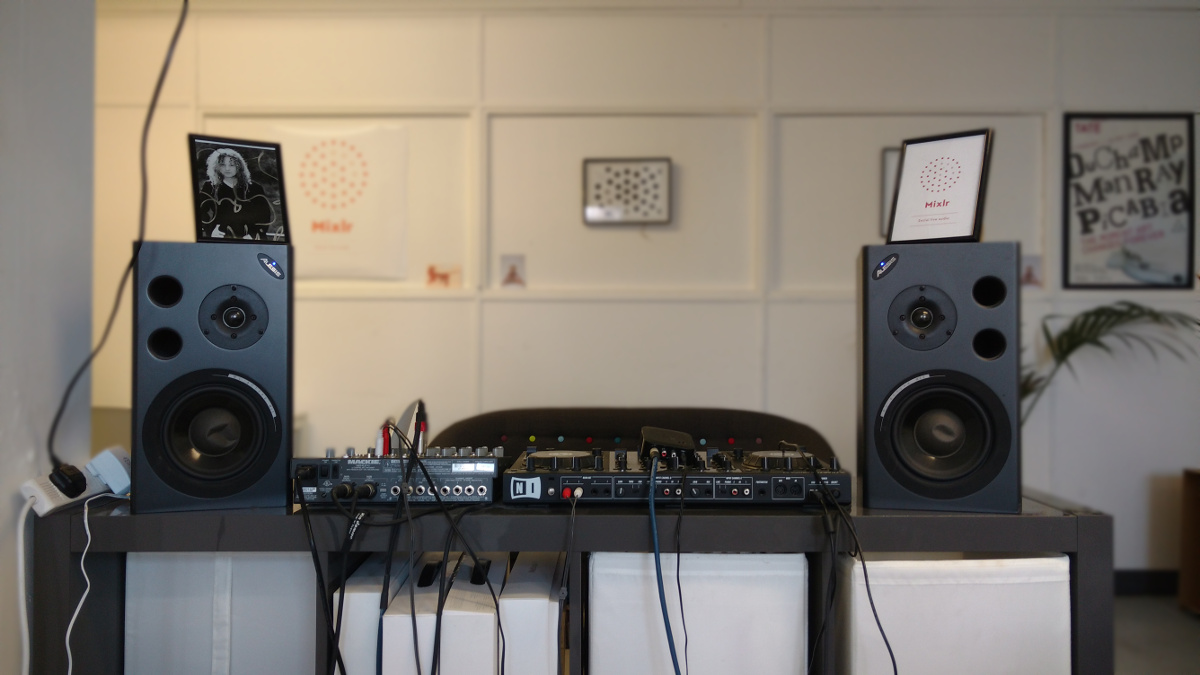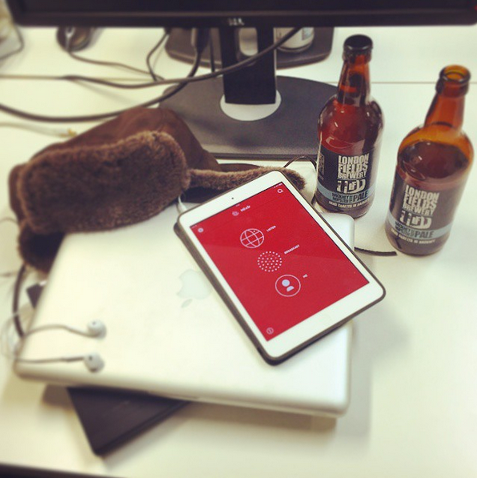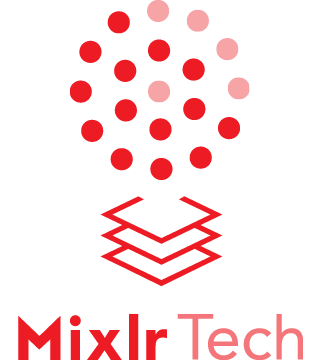5 ways we work as a team at Mixlr
We're hiring. If you enjoy reading this post, you'll find Mixlr is a great team to be a part of. Visit the Mixlr jobs homepage.
At Mixlr, we’ve racked up more than five years of experience working as a team to create our service.
Along the way, we’ve also accumulated a few methods that help us work together effectively as a team on a day-to-day basis. Here are some of our favourites.
Daily standup
A standup is one of the most commonly known agile methodologies. Everybody in the team comes together for a few minutes, to recap what they worked on yesterday, and what they’re planning to work on today.
We find it’s a great start to the day for a few reasons.
Firstly, it ensures that everybody’s first act of the day involves communicating with the whole group, which we find helps get the day off to a positive start.
Secondly, it’s an easy way for everybody to keep track of what others are working on. If a team member is unable to proceed with their task-in-hand for some reason, then the standup helps unblocking to happen naturally.
After some previous attempts, we’ve settled for now on a simple format that works well for us. For reasons too archaic to pin down, a generous and not remotely ironic dose of Mick Hucknall is involved.
In-office sound effects
We use Slack for group chat at Mixlr, ever since migrating away from the erstwhile number one Campfire.
Slack has proven more useful, and infinitely more addictive, but there’s one thing we sorely missed - Campfire’s sound effects.
There’s nothing like being able to drop a creative sad trombone into conversation to help make one’s point. So we decided to act.
Our team member Konrad — with the help of a Raspberry Pi, the Go programming language and Slack’s command API — built an ingenious custom sound effects system that allows any of our team to use Slack to trigger a library of custom sound effects over the office sound system.
And it works… amazingly well.
We now have not only the Campfire sound library, but an ever-growing cumulation of custom sounds too.

1-to-1s
Every fortnight, each member of the Mixlr team gets out of the office and spends a scheduled hour one-to-one with their first-contact manager.
The subject of the meeting varies, and is ultimately up to the team member: it’s their time to discuss on-going projects, vent about any frustrations they may have, and ask questions about anything and everything.
We’re still in the early days of our adoption of regular 1-to-1s, but we’re already seeing some profoundly positive benefits: new lines of communication being opened up, and interesting and valuable discussions which quite likely would otherwise never have occurred.
There’s no doubt that 1-to-1s will be an important part of our process going forward.
Real-time customer milestones
It’s a nice feeling when the work you’ve done has led to a new customer signing up, or a user sending us an positive email.
We try to make the most of this by having key customer milestones posted automatically into Slack.
When a customer signs up or renews their subscription, or creates a new event — everybody can see that it’s happened, instantly. (And the same goes for new support cases, @replies on Twitter, cancellations, and a whole lot more besides).
We also post automated daily updates of our key company KPIs for our team each morning, which helps to improve overall transparency too.
Real-time milestones have helped our team to feel more connected with our product and users.
Friday beers + tech/product talks
On Fridays, work finishes at 5pm and we break for beers and tech talks.
Often, individual team members informally present what they’ve been working on that week, which is another great opportunity for everybody to keep in the loop of upcoming product changes and improvements.
Sometimes, there’s a more generic tech subject that somebody is interested in demonstrating. Occasionally, we end up in the pub instead. Either way, it’s a great tradition that’s fun, and helps to ensure our team winds down from the week effectively (and perhaps a little bit drunk).
Related: 10 open source technologies we use to build Mixlr


